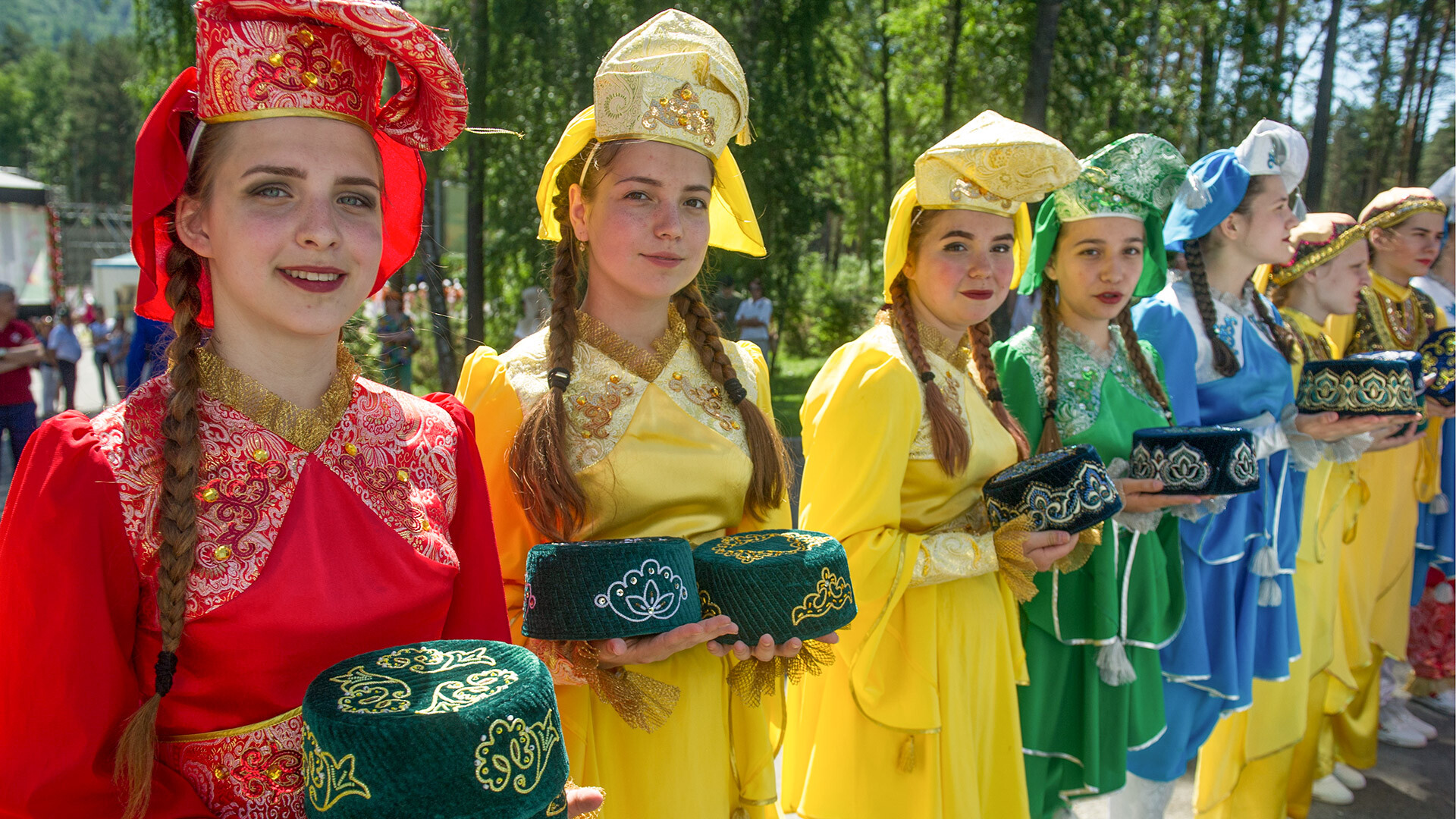
Women in national Tatar costumes during the Sabantuy holiday in Altai.
Kirill Kukhmar/TASSTatars are the second largest ethnic group of Russia after Russians themselves (4.7 million people). The majority of them live in the Republic of Tatarstan in the Volga Region and the neighboring regions; however, about half a million of them are indigenous Siberians.
Different indigenous ethnicities live alongside Russians on the vast Siberian territories and many of them are Turkic. Different Turkic tribes of the Khanate of Sibir were the ancestors of Siberian Tatars. The Khanate formed on the ruins of the Golden Horde and disappeared in the 16th century with the arrival of the Russians.
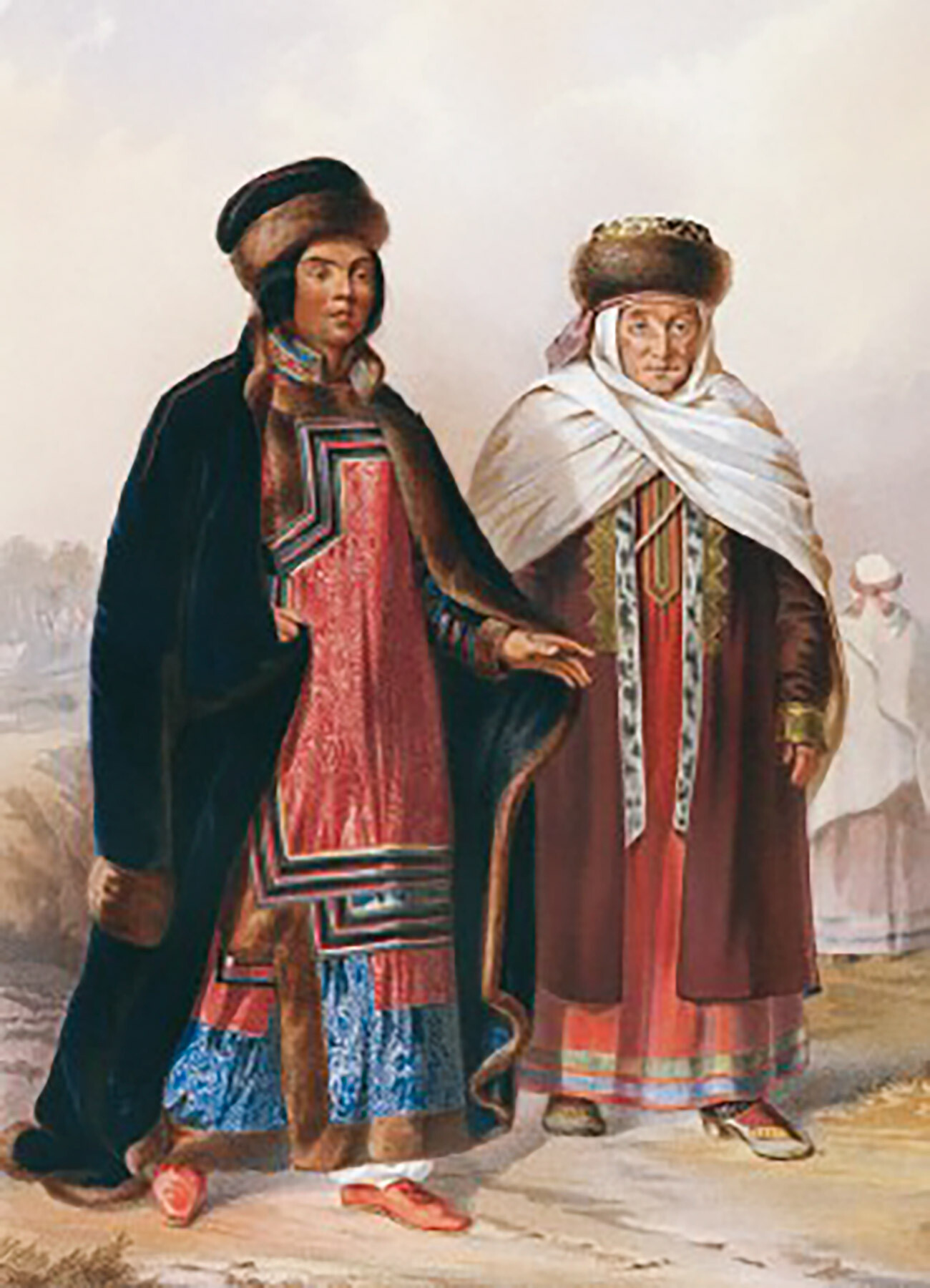
Siberian Tatars of the Yenisei and Tomsk provinces.
Public DomainThe Khanate of Sibir inhabitants called themselves not Tatar, but “nugay”, “kurdak” and “kypchak” (read more here). Their state religion was Islam, same as for the majority of Tatars.
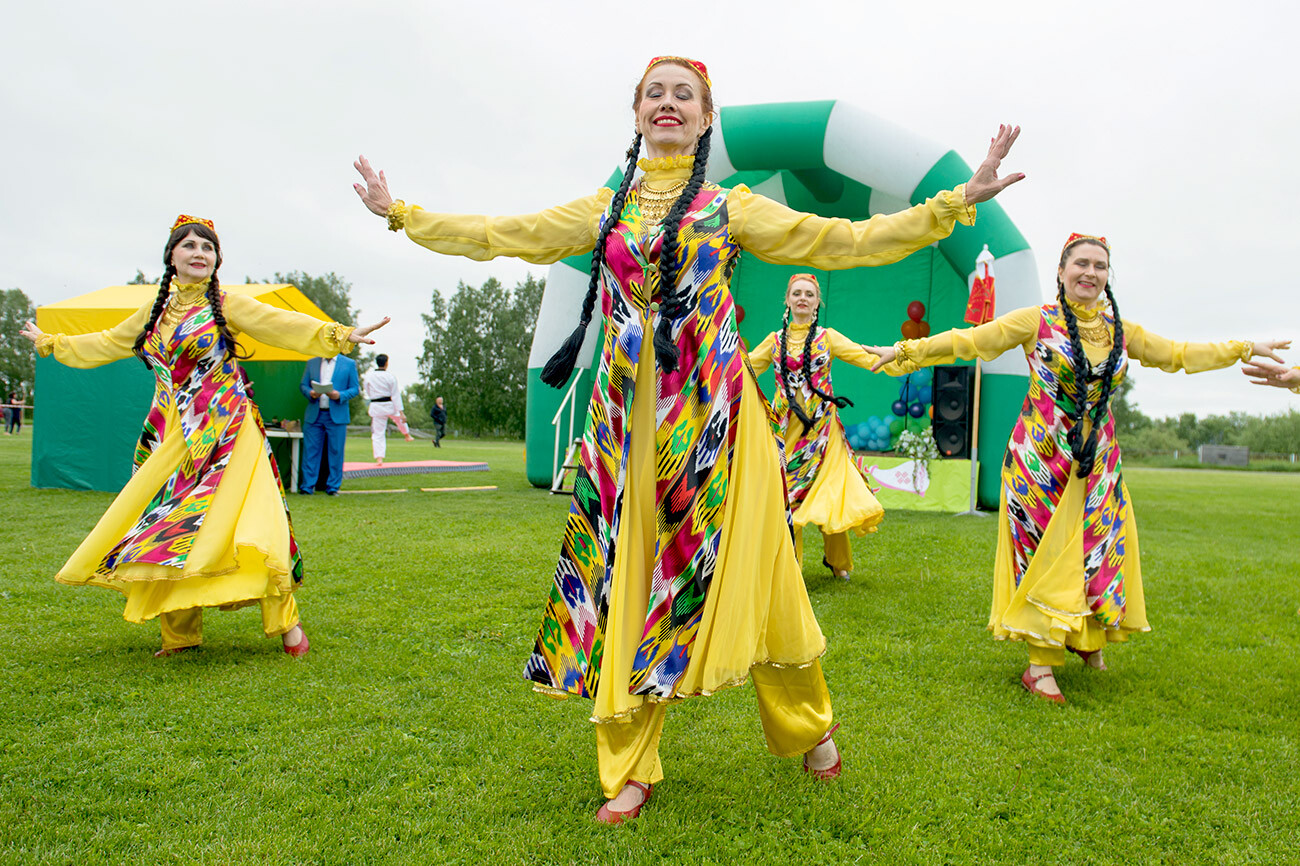
Sabantuy celebration in the village of Chernaya Rechka in the Tomsk Region.
Taisia Vorontsova/TASSSiberian Tatars called their settlements ‘auls’ and ‘yurts’. For example, the name of the village Yurty-Konstantinovy simply means: “The house of the Konstantinovs” and Aul-Bergul – a village on the shore of Lake Bergul. Such names can be spotted in the Tyumen, Omsk, Tomsk, Novosibirsk, Kurgan and Kemerovo regions. Only a mosque, instead of an Orthodox Christian temple, distinguishes them from Russian settlements, as well as many houses painted green, a tradition with Islam.
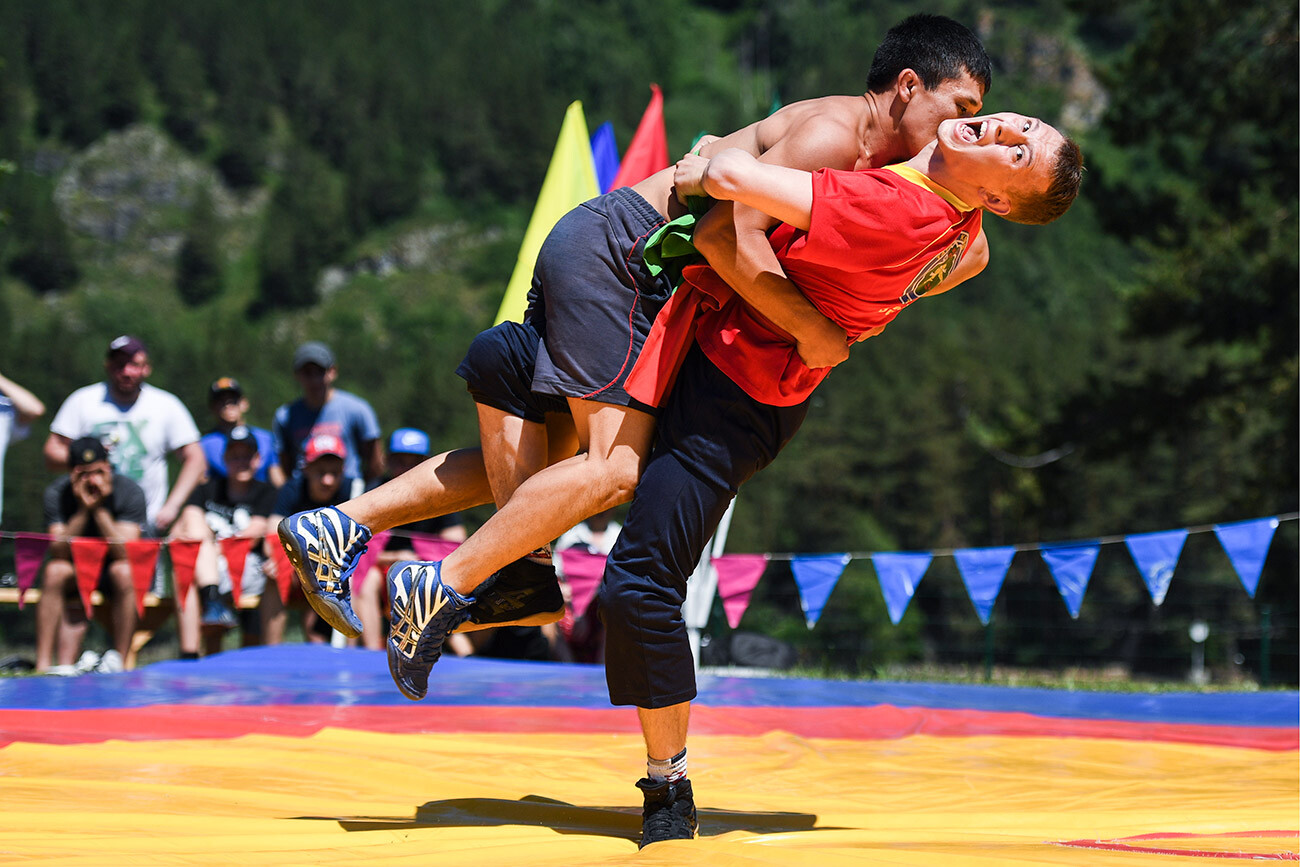
Belt wrestling "Kuresh" during the Tatar national holiday XXV Altai Sabantuy.
Kirill Kukhmar/TASSInitially, only the people of the Khanate of Kazan called themselves Tatars, which also appeared in Volga Region with the disintegration of the Golden Horde; it was annexed to Russia in the 16th century. In the end, Russians began calling many Turkic peoples, who lived in the Russian Empire, simply ‘Tatars’. Kumyks were now called ‘Caucasian Tatars’, the Altaians were called ‘Altaian Tatars’ and the inhabitants of Western Siberia – ‘Siberian Tatars’.
The language of Siberian Tatars is a topic for discussion in scientific circles. The majority of linguists consider it a dialect of the Tatar language, but there are experts who distinguish it as a separate language.
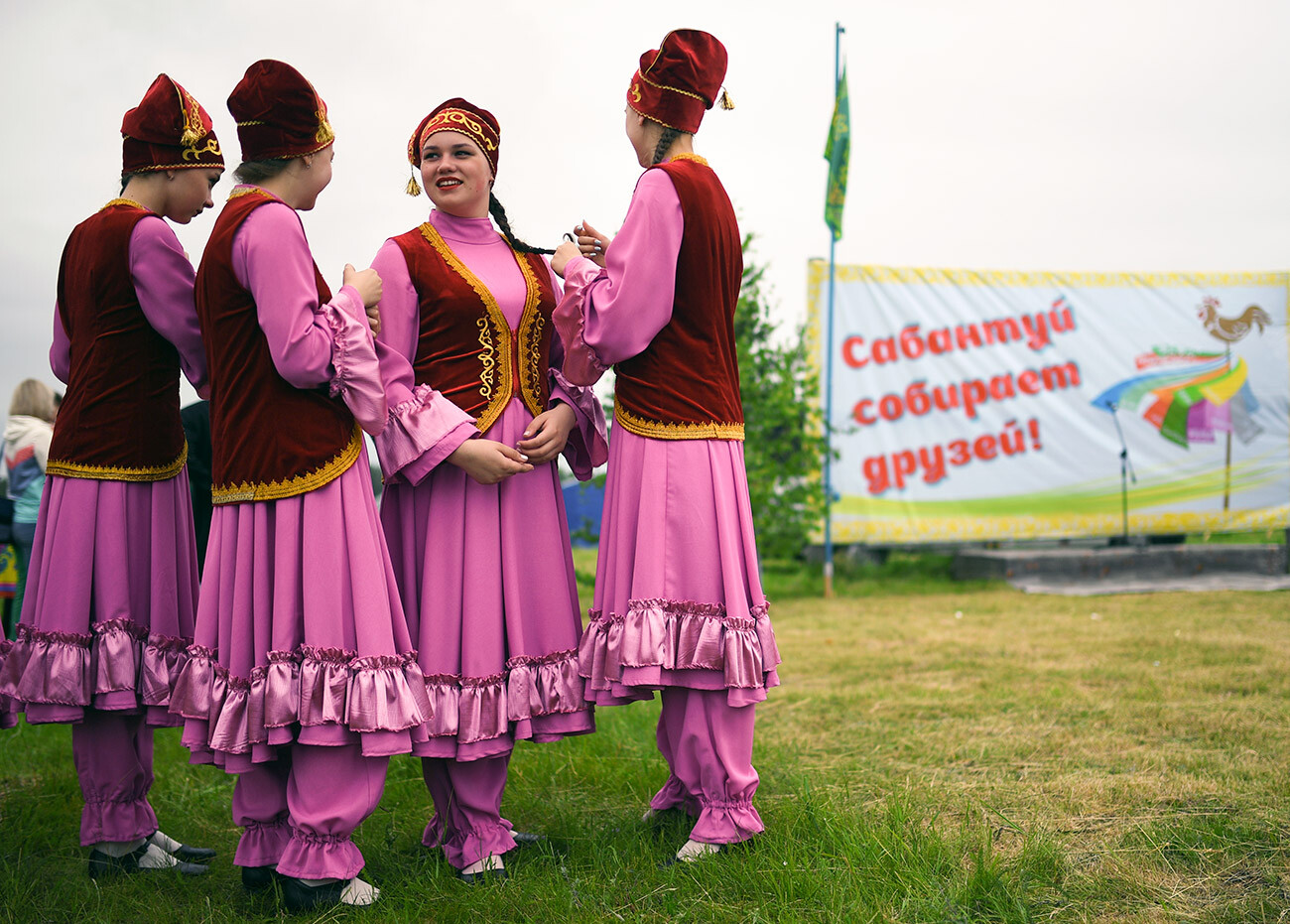
Folk ensembles performing during the Sabantui holiday near the village of Yurt-Ora in the Novosibirsk Region.
Alexander Kryazhev/SputnikThe Institute of Linguistics of the Russian Academy of Sciences defines the Siberian Tatar language as a “set of dialects, spread throughout Western and Southern Siberia and consolidated in three groups: the Tobol-Irtysh, Barabinsk and Tomsk groups.” There are also many dialects within these groups. Due to the remoteness of the settlements from one another, all these dialects actually formed separately.
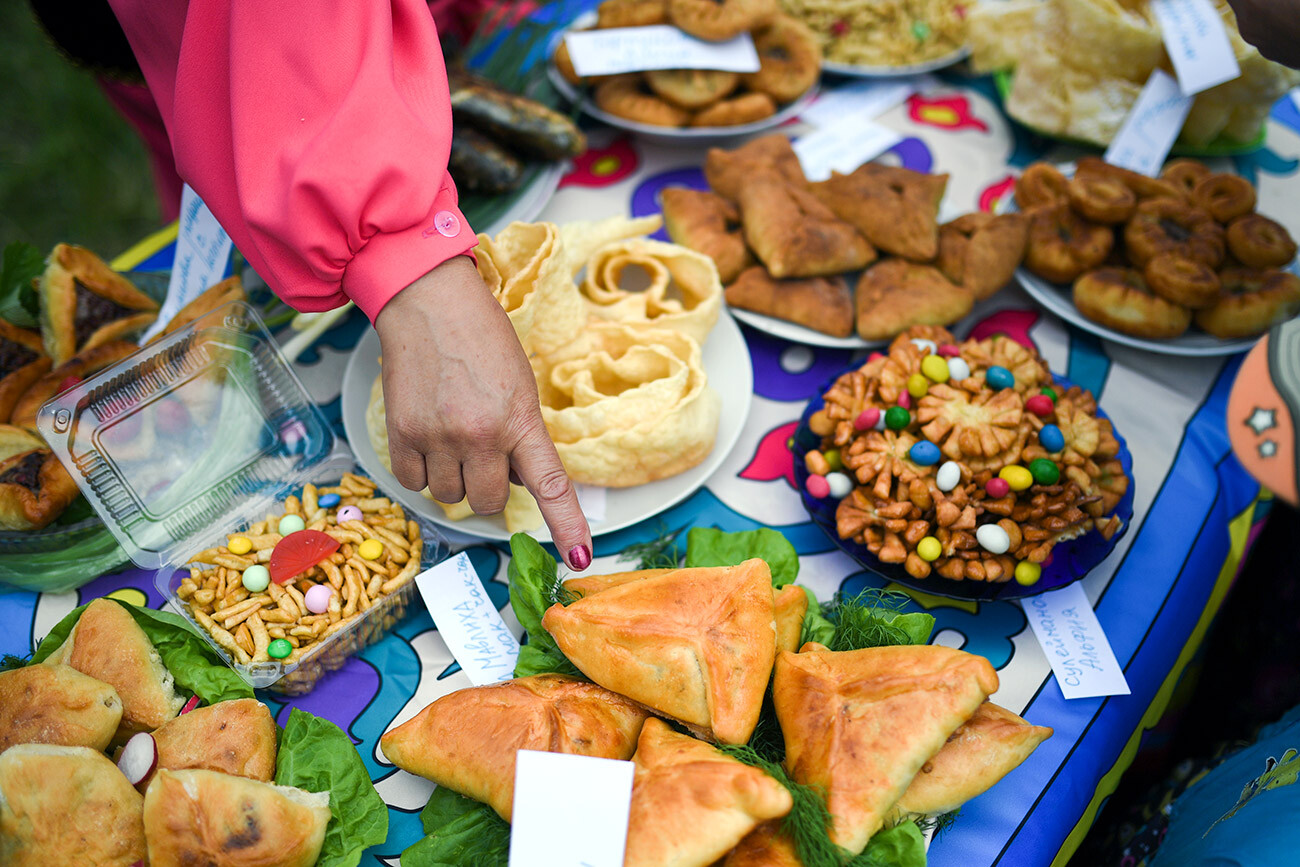
Tatar dishes. The village of Yurt-Ora in the Novosibirsk Region.
Alexander Kryazhev/SputnikIn the Soviet era, all citizens of the country were taught how to read and write and Siberian Tatars studied the Kazan Tatar language at school (along with the Russian language, of course).
So, today, one can only find native Siberian Tatar speakers, perhaps, in some hard-to-reach settlements.
Siberian Tatars, like Volga Tatars, are mainly Sunni Muslims. However, they have not just religious, but also folk celebrations, dedicated to the cult of nature.
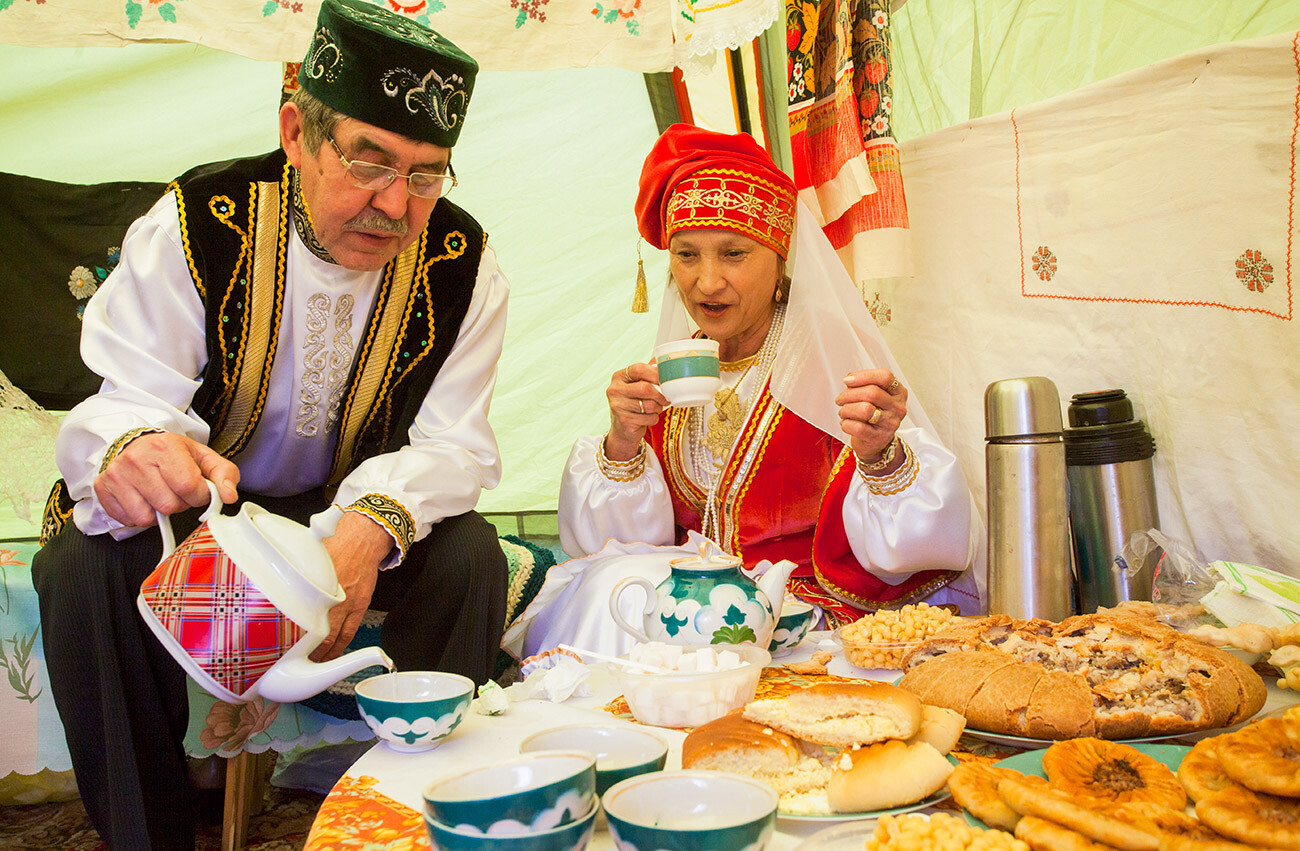
At the Tatar holiday of Sabantuy in Omsk.
Dmitry Feoktistov/TASSFor instance, Siberian Tatars celebrate a holiday of the coming of spring called ‘Amal’ or ‘Emel’ (‘Nowruz’ is another name). It coincides with the Spring Equinox on March 21. Some Siberian Tatars who live on the riverbanks retained their spring “farewell to ice” ceremonies. They make a little doll, put it into a small handmade boat and release it down a river.
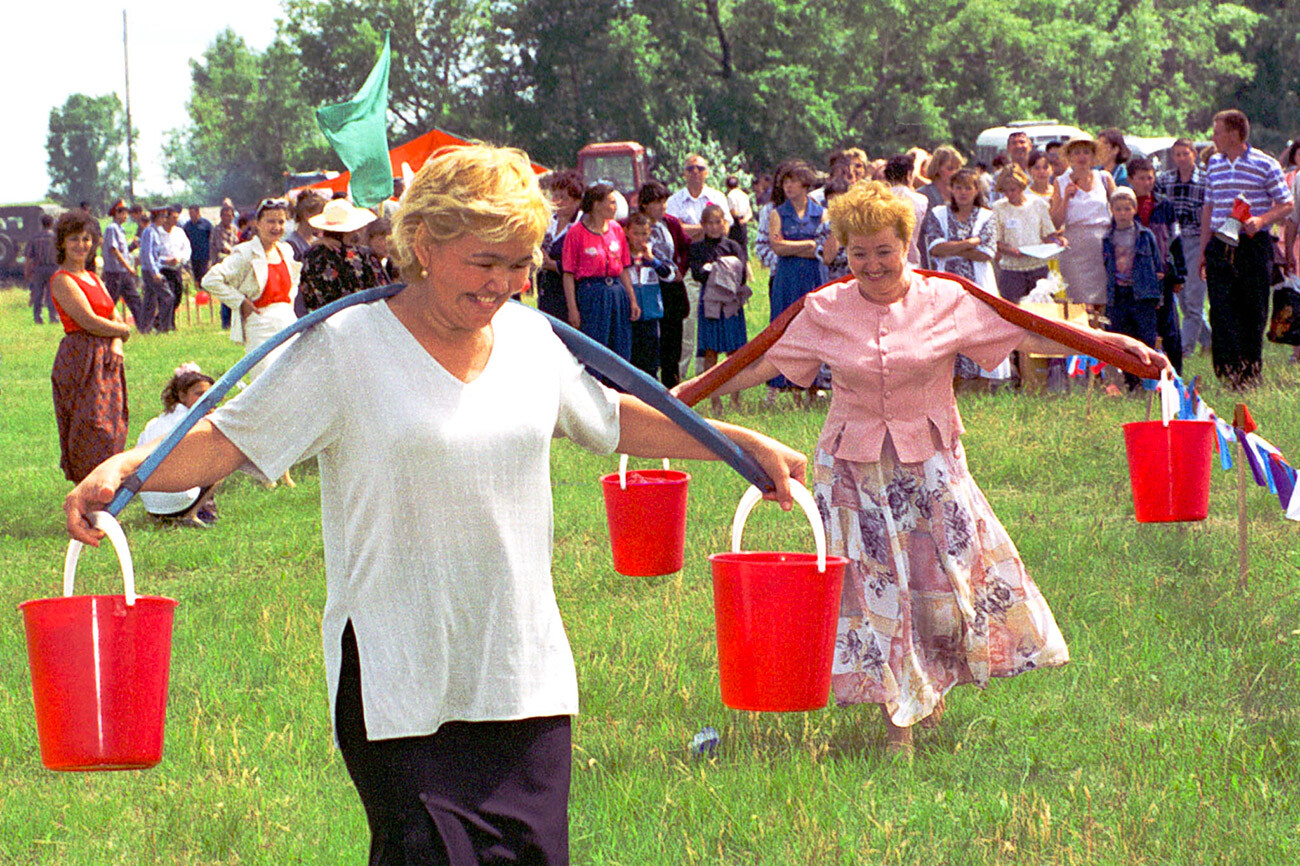
Embaevo, Tyumen Region.
Alexei Shchukin/TASSThe main holiday of the year, which all Tatars celebrate, is ‘Sabantuy’ – “the holiday of the plough”.
Dear readers,
Our website and social media accounts are under threat of being restricted or banned, due to the current circumstances. So, to keep up with our latest content, simply do the following:
If using any of Russia Beyond's content, partly or in full, always provide an active hyperlink to the original material.
Subscribe
to our newsletter!
Get the week's best stories straight to your inbox